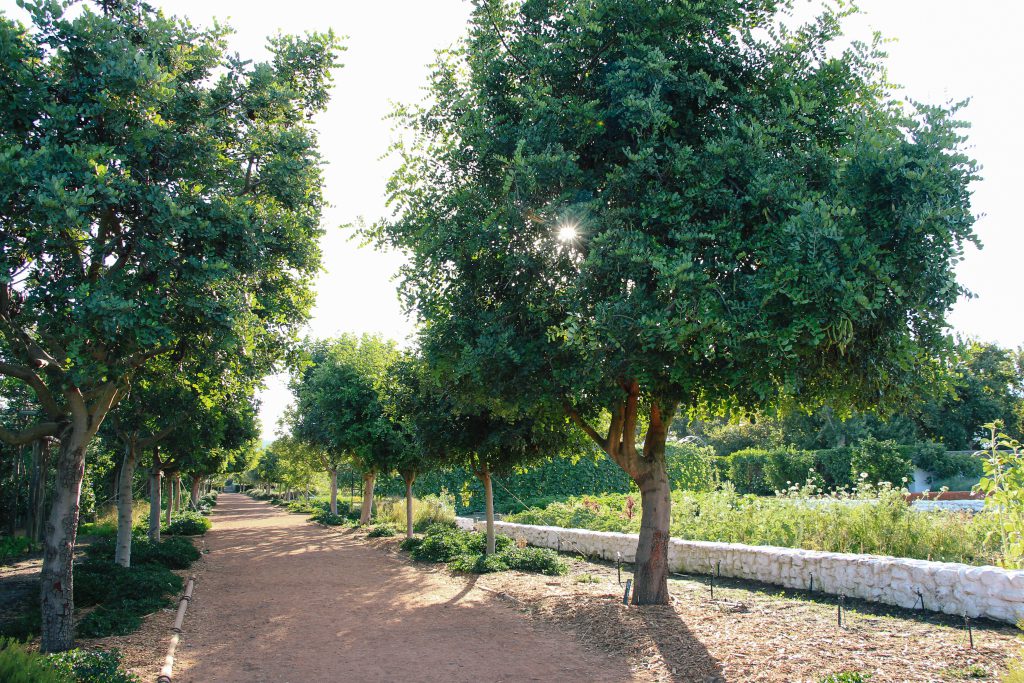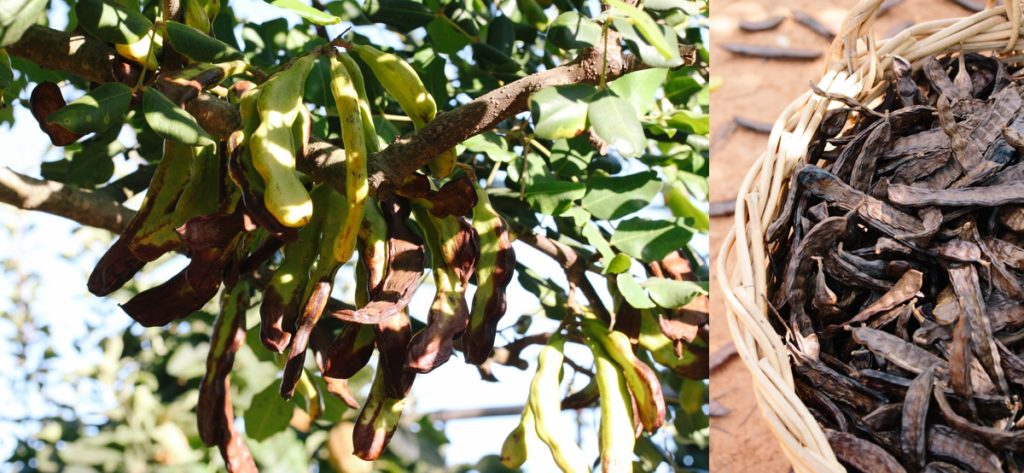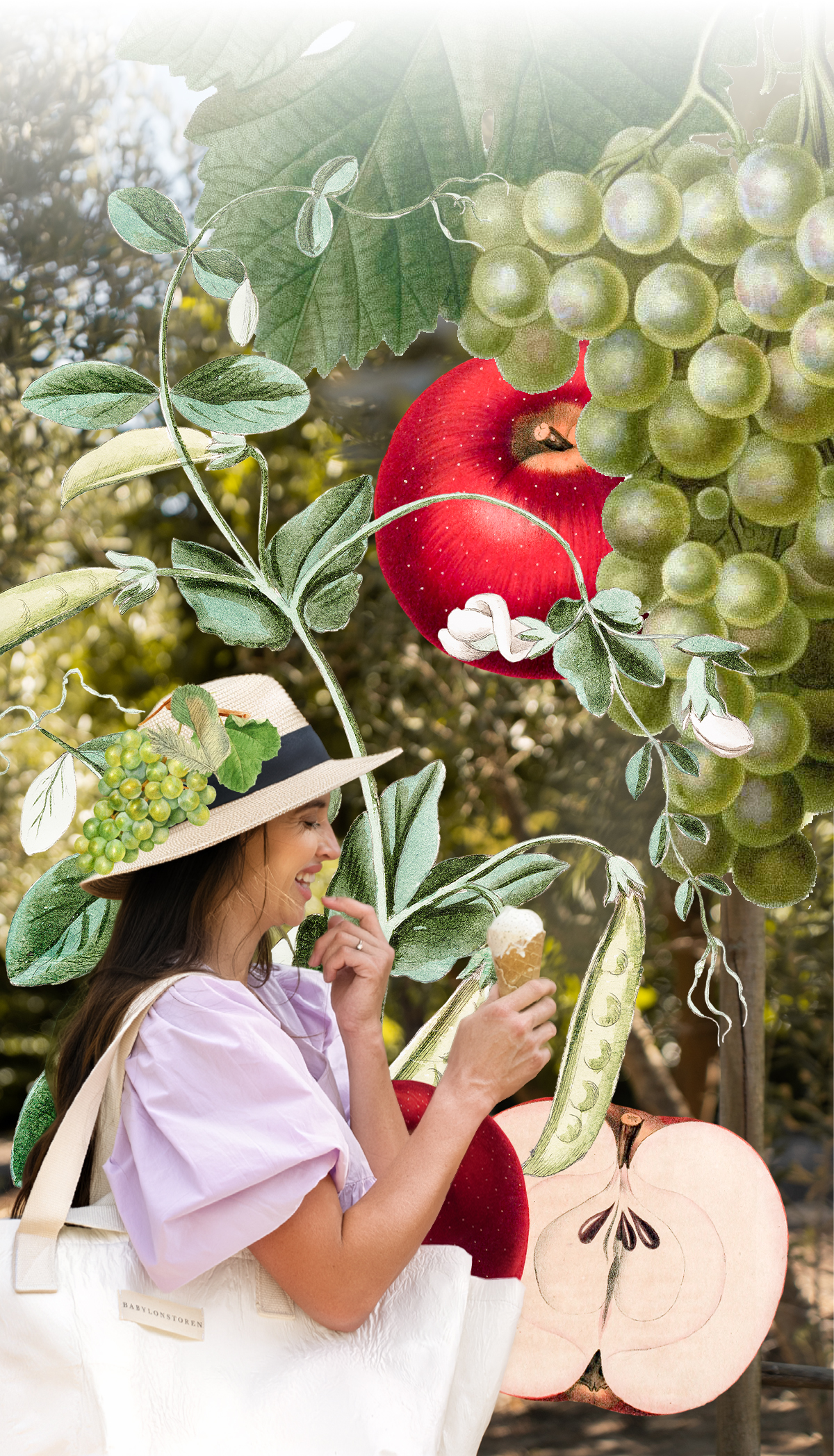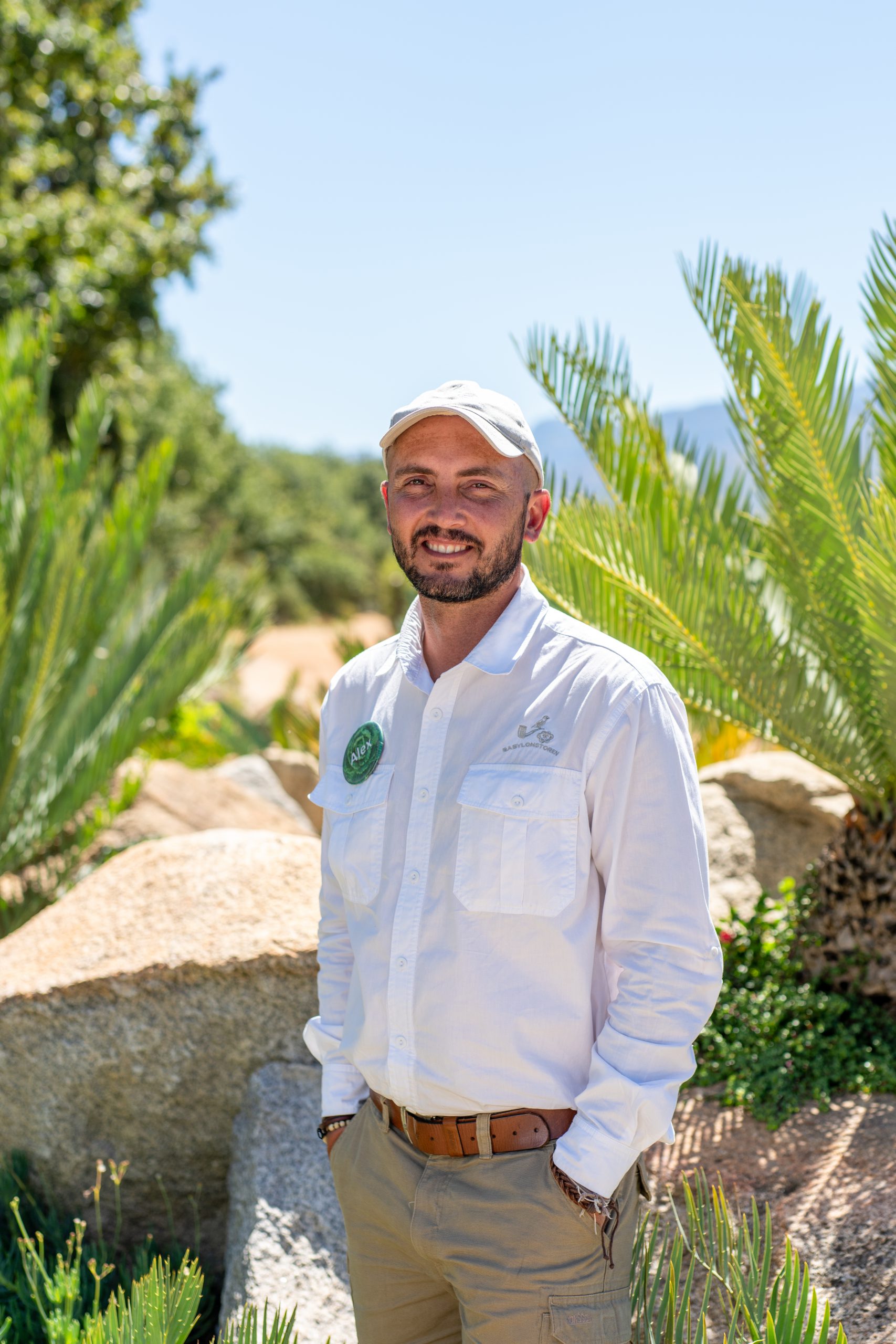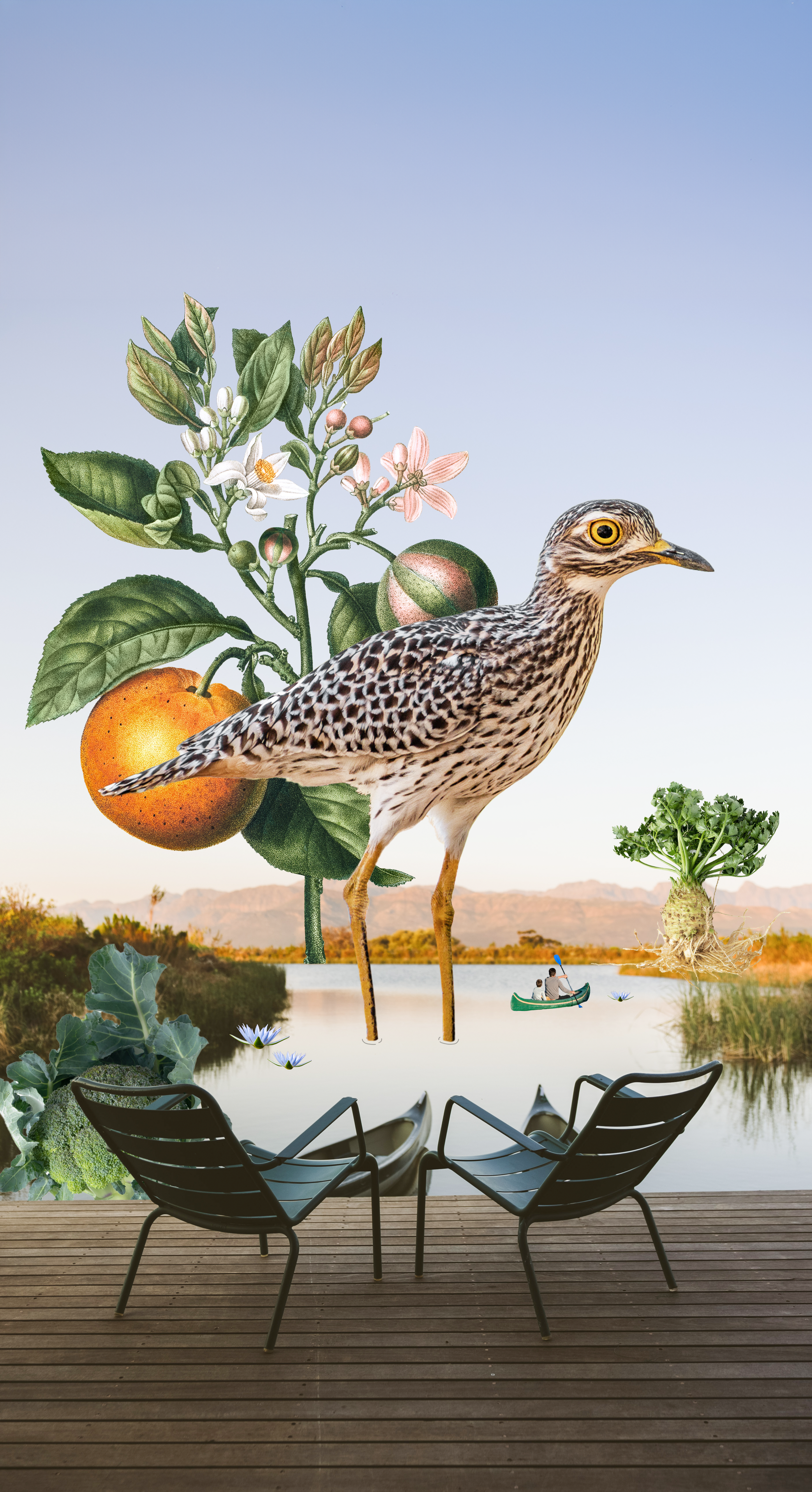In Admiration of the Carob Tree
January 18th, 2019It was always important for us to create a garden that sustained and delighted our guests throughout the year. For this reason, lanes of evergreen trees accompany the pathways to shelter our garden strollers from the sun, no matter the season. One of these varieties is the carob tree – an ancient species with a multitude of health benefits and a dense green canopy. On a sweltering summer day, you’ll find guests beneath these trees to enjoy their blissful shade, the delicate sweetness of their fruit and the low hum of busy bees above their heads.
The carob tree has deep roots in history. It is known in Afrikaans as the Johannesbroodboom, a name derived from the belief that the flesh of carob pods sustained John the Baptist during his long trek through the desert. In the Bible, God gave Jonas shelter under a carob tree – a luxury which was quickly taken away to teach him a sound lesson in appreciating his fellow man and nature. Aside from its symbolic value, the carob tree has played practical roles as well. The size and weight of the carob seed is unfaltering in its consistency, a characteristic that was put to good use in the gold and diamond mines of Kimberley: 14 carob seeds were used to classify a 14-carat diamond. In Europe, the length of a carob seed was used to develop standard shoe sizes; a size 37, for example, is the length of 37 carob seeds in a row.
Some people may be more familiar with carob as a health food. Once you get beyond the slight stinky cheese smell, the flesh of its pods is naturally sweet and can be nibbled on straight from the tree – Gundula likes to refer to carob pods as a ‘modern-day energy bar’. Just avoid the hard seeds, which need to be ground down to a fine powder before they can be consumed. Carob powder and products can be used as a caffeine-free and diabetic-friendly alternative to cocoa – it also contains around eight times more calcium than milk and a good dose of magnesium. In order to reap its benefits, Gundula likes to steep a sweet tea of roasted pods and a pinch of cardamom – a drink which has become wildly popular on the farm.
